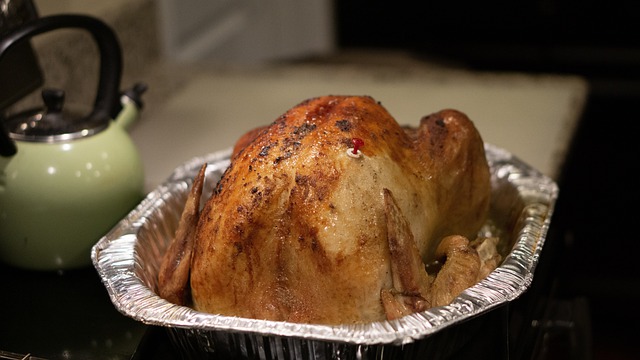The holidays bring with them thoughts of carving and serving delicious turkey dinners to your family and friends. Tradition has its fans, but perhaps this year you’d like to try a twist to your turkey recipe. If you have a gas grill and enjoy the smoky flavor of grilled meats, why not try grilling your turkey this year? It’s not only possible, it is rather simple. And it delivers a delicious flavored bird to your table. Plus, having the turkey on the grill instead of the oven leaves you with all the room you need to prepare the rest of your dinner in less time.
When you are ready to buy your turkey, the first thing to consider is the size of your grill. You don’t want a bird that is so enormous that it can’t fit on the grill rack. Ideally, the turkey you select should sit on the grill and the lid should close without touching the bird. If this isn’t possible, don’t worry, you can still grill your turkey. You’ll need some heavy duty aluminum foil and either a V shaped grill stand or another metal cooking instrument that you can safely use to prop open the lid of the grill.
Prepare and stuff the turkey as you normally would. Place it on the grill so that it is positioned over one burner that you can turn off. Turn that burner off and the other burner or burners on. Since you can’t really “flip” a turkey, you want the turkey to cook by indirect heat, not by a direct flame underneath it.
You get the smoky flavor by using wood chips. If you haven’t used wood chips before, they’re easy to use. You soak them in water so that as they dry out from the heat of the grill, they’ll release a flavored smoke that infuses the turkey. You can purchase a tray that is designed for putting wood chips on the grill or you can make one yourself from heavy duty aluminum foil. Take the wood chips out of the water and put them into your tray. Place the tray on the grill over the lit burner.
Next, close the lid fully if possible. If not possible, prop the lid up just enough to keep it from touching the turkey. Then cover the remainder of the opening with aluminum foil. If heat gets out you will probably have to cook the turkey longer. However, the foil creates enough of a barrier so the smoke is kept circulating inside the grill and flavoring the turkey.
The time required to cook the turkey will vary depending on whether or not you were able to close your grill completely. If you can, it will take less time. If you can’t, you might want to increase the heat on the other burner or burners to try to make up for the lost heat by having to prop open the grill. After a couple of hours, rotate the turkey 180 degrees to help ensure even cooking.
As with any method of cooking poultry, it’s important to make sure that the internal temperature of the meat reaches 160 degrees Fahrenheit. Ideally you should use a meat thermometer to monitor the temperature as you cook. If you don’t have one, then you’ll have to check the readiness by poking the thigh with a fork or skewer. If the juices that run out are clear and the turkey has turned a nice golden-brown color, then you are ready to remove it from the grill. Consider glazing the turkey with a sauce you use on other meats, or possibly adding barbecue sauce to the traditional cranberry sauce as a condiment. Don’t be afraid to experiment – enjoy the new twist you’re putting on an old family tradition.
